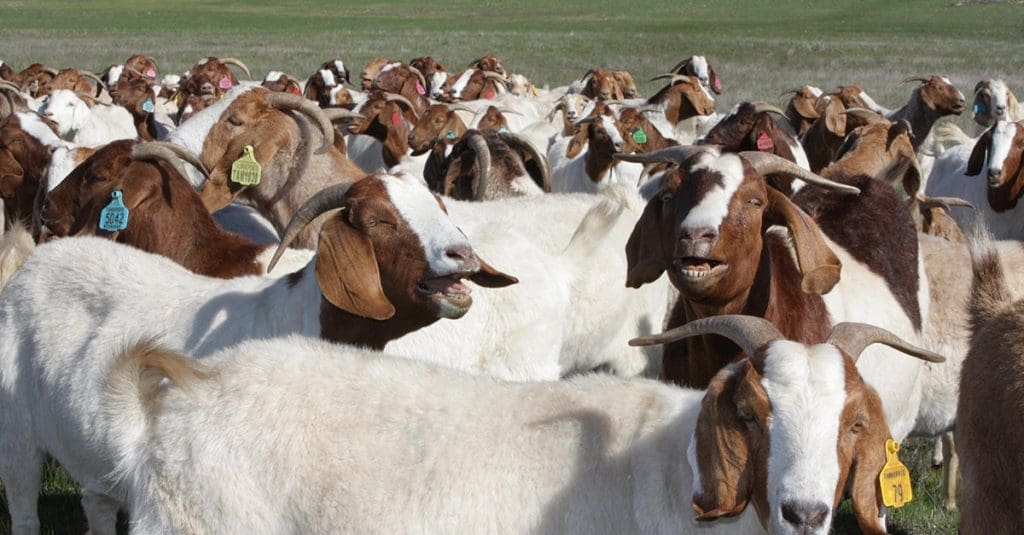
Boer meat goats. Image – MLA
AUSTRALIAN goat meat producers are working with researchers to boost productivity and meet growing export demand as they measure herd reproduction rates in local production systems.
Researchers have already conducted up to 6800 doe pregnancy scans and are seeking more producers to join the project, take advantage of a scanning subsidy and help optimise the results.
As part of the project, producers are invited to share herd reproduction records, particularly information confirming the number of does joined and kids weaned.
Meat & Livestock Australia goat industry project manager, Julie Petty, said producers are working in collaboration with leading researchers who specialise in reproduction, nutrition, maternal efficiency, herd health and veterinary epidemiology.
“Input from producers is ensuring results can be implemented on-farm to boost productivity.
“Improved knowledge of the constraints to goat reproduction has the potential to lift weaning rates, which is likely to be a key profit driver based on results in the beef and sheep meat industries,” Ms Petty said.
“We know the market is there and growing with 21,026 tonnes of Australian goat meat valued at $182.6 million exported in 2018.”
The project is funded by MLA and the NSW Department of Primary Industries and led by NSW DPI in collaboration with Charles Sturt University through the Graham Centre for Agricultural Innovation.
Project leader, NSW DPI livestock research officer, Gordon Refshauge, said subsidised pregnancy scanning is available to producers through the study.
“We are particularly interested in hearing from producers with more than 200 does in managed and semi-managed systems.
“Seasonal conditions have been tough and many producers have reduced stocking rates to ease grazing pressure and capitalised on current market values, but we are keen to hear from anyone who feels they can offer their input to the project,” Dr Refshauge said.
Producers interested in finding out more about how they can become involved in the project can contact Dr Gordon Refshauge on (02) 6349 9715 or via email
Source: MLA.

HAVE YOUR SAY